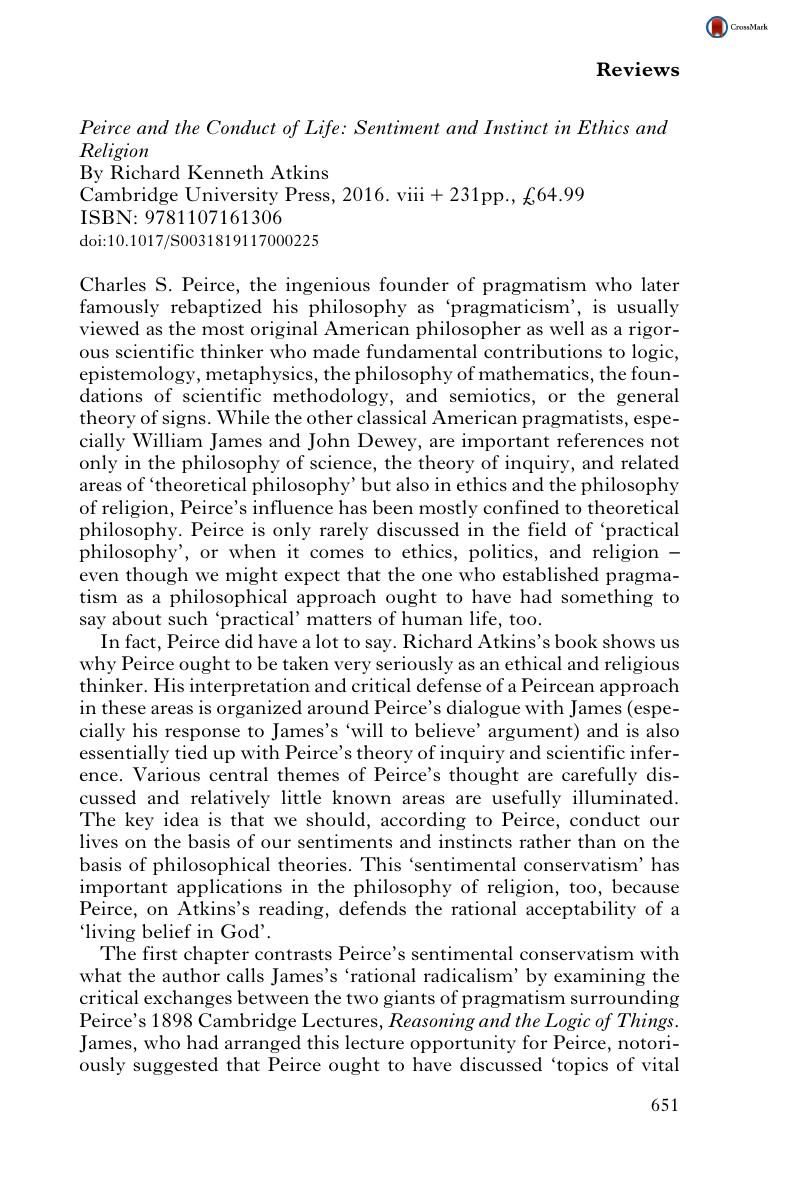No CrossRef data available.
Article contents
Peirce and the Conduct of Life: Sentiment and Instinct in Ethics and Religion By Richard Kenneth Atkins Cambridge University Press, 2016. viii + 231pp., £64.99 ISBN: 9781107161306
Published online by Cambridge University Press: 08 June 2017
Abstract

- Type
- Reviews
- Information
- Copyright
- Copyright © The Royal Institute of Philosophy 2017
References
1 This is how Peirce formulates the matter in the first Cambridge Conferences Lecture, ‘Philosophy and the Conduct of Life’, in Peirce, Charles S., Reasoning and the Logic of Things: The Cambridge Conferences Lectures of 1898 (Cambridge, MA: Harvard University Press, 1992), 108Google Scholar (repeatedly quoted by Atkins).
2 I cannot here deal with antitheodicist argumentation in general. A broadly Jamesian approach to antitheodicy is defended in Pihlström, Sami, Pragmatic Pluralism and the Problem of God (New York: Fordham University Press, 2013)CrossRefGoogle Scholar; and Kivistö, Sari and Pihlström, Sami, Kantian Antitheodicy: Philosophical and Literary Varieties (Basingstoke: Palgrave Macmillan, 2016)Google Scholar.
3 Here it might be suggested that Atkins, who is generally extremely familiar with both his primary and secondary sources, ignores a relevant piece of scholarship, i.e. McMahon, Jennifer A., Art and Ethics in a Material World: Kant's Pragmatist Legacy (London and New York: Routledge, 2014)Google Scholar.





